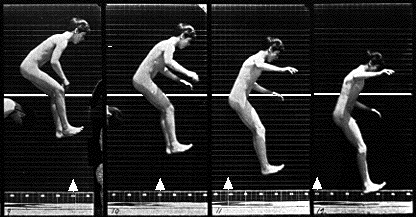Gianna D'Emilio
Knowledge
For a hundred years, "knowledge" was a verb. It was an action to perform, used as we would now use "aknowledge"*. Between the thirteenth and fourteenth centuries, a person "knowledged" what was in their sphere of consconscious experience. As a verb, it carried the weight of an illumination under pressure, an unearthed experience aired with the hope of absolution or diagnosis. To "knowledge" was to admit, to recognize, and to confess. To "knowledge" was to aknowledge what had once been passed over.
As we learned with Foucault, this practice of divulging the company of authority gained an incredible value- so much importance was assigned to the act that through the faith and dilligence of a thousand trembling lips and a two thousand trained ears, our belief in the process of confession granted it a concrete form. Knowledge ceased to be something to do, and became a "thing" itself- a pseudo-object as hopelessly cranial and invisible and honoured as any other idea.
Now a noun, "knowledge" is something shared, lost, and recovered, imparted, abandoned and managed. It bears education and offers it to anyone already educated enough to appreciate its value. With the boom of computer-technology that marked the end of the Cold War, one analyst declared that America's power structure was based in "an economy of knowledge".* The exchange of physical wealth had come to depend on the widespread transmission of a more intangible currency.
Foucault tells us that knowledge, both in its confessional verb form and in its directive noun incarnation, has been applied furiously to sex, and asks us to examine the reasons why:
" For many years we have all been living... under the spell of an immense curiosity about sex, bent on questioning it, with an insatiable desire to hear it speak and be spoken about... As if it were essential for us to be able to draw from that little piece of ourselves not only pleasure but knowledge, and a whole subtle interchange from one to the other ... Between each of us and our sex, the West has placed a never-ending demand for truth: it is up to us to extract the truth of sex... it us up to sex to tell us our truth, since sex is what holds it in darkness... Several centuries ago it was placed at the center of a formidable petition to know... We must write the history of this will to truth, this petition to know what for so many centuries has kept us enthralled by sex: the history of a stubborn and relentless effort."*
Foucault tells us that we have been attacking the act of sex with the quest for knowlege because sex is an act performed in the shadows, shrouded, and thus in need of illumination. Because it is seen as a great mystery, and therefore an open forum for interpretation, we have assigned sex the power to identify us, to explain our behaviour, to render us defective, and to weaken our children. Sex is believed to be the source of knowledge, and is thus the victim of a knowledge-inquisition. Foucault asks us to question and interrupt this use of knowledge, and to start by examining its source in the act of confession. He has asked us to see the verb within the noun.
Note: Oh no! all of my footnotes turned into stars here! Does anyone know how to fix that?
Here they were:
1: When "knowledge" became a noun, it also gained the prefix "a" (which is a shorthand for the Latin prefix ab- "from", or ad-"to",) to become "aknowledge"
2:The History of Sexuality, p.77-79.
